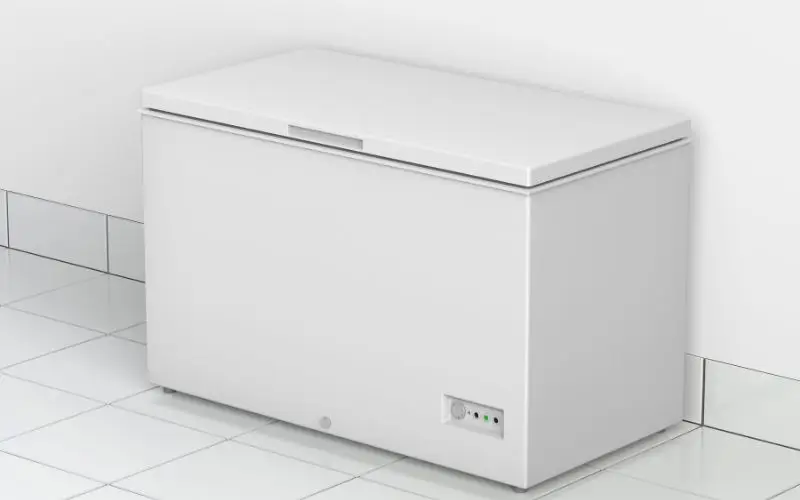
Commercial Freezers: Essential for Your Business
Commercial freezers are indispensable assets for businesses in the food industry, hospitality sector, and healthcare facilities. These specialized appliances are designed to store perishable items at low temperatures, preserving their freshness and quality. In this comprehensive guide, we’ll delve into the world of commercial freezers, exploring the different types, their benefits, factors to consider when purchasing, maintenance tips, safety measures, and more.
Types of Commercial Freezers
Reach-in Freezers
Reach-in freezers are compact and versatile, making them ideal for establishments with limited space. They feature upright designs with multiple shelves or drawers, allowing for easy access to stored items. These freezers are commonly used in restaurants, convenience stores, and small cafes.
Walk-in Freezers
Walk-in freezers offer ample storage space and are suitable for larger establishments with high-volume storage needs. These freezers are spacious enough to accommodate pallets of food items and are commonly found in supermarkets, warehouses, and commercial kitchens.
Undercounter Freezers
Undercounter freezers are designed to fit beneath countertops, maximizing floor space in commercial kitchens and food service areas. These compact units provide convenient access to frozen goods while seamlessly blending with existing cabinetry and workspace layouts.
Benefits of Commercial Freezers
Energy Efficiency
Commercial freezers are engineered for energy efficiency, helping businesses reduce their utility costs while minimizing environmental impact. Advanced insulation technologies and energy-saving features contribute to lower energy consumption without compromising performance.
Increased Storage Capacity
One of the primary advantages of commercial freezers is their expansive storage capacity. Whether you’re storing bulk quantities of frozen food products or delicate ingredients, these freezers offer ample space to meet your business’s needs.
Temperature Control
Maintaining precise temperature control is essential for preserving the quality and safety of perishable items. Commercial freezers are equipped with advanced temperature management systems, ensuring consistent and reliable cooling performance.
Factors to Consider When Buying
Size and Capacity
When selecting a commercial freezer, consider the size and capacity that best suits your business requirements. Assess the volume of frozen goods you need to store regularly and choose a freezer with adequate space to accommodate your inventory.
Energy Efficiency Ratings
Look for freezers with high energy efficiency ratings to minimize operating costs and environmental impact. Energy-efficient models may qualify for utility rebates and incentives, providing additional savings for your business.
Budget
Establish a budget for your commercial freezer purchase and explore options that offer the best value for your investment. Consider long-term operating costs, maintenance expenses, and potential savings from energy-efficient features.
Maintenance Tips
Regular Cleaning
Maintaining cleanliness is crucial for optimal freezer performance and food safety. Establish a regular cleaning schedule to remove ice buildup, spills, and debris from the interior and exterior surfaces of the freezer.
Temperature Monitoring
Monitor the temperature of your commercial freezer regularly to ensure that it remains within the recommended range for safe food storage. Invest in digital thermometers and temperature monitoring systems for accurate measurements.
Inspections and Repairs
Schedule routine inspections and maintenance checks to identify any potential issues or malfunctions early on. Addressing minor repairs promptly can prevent costly breakdowns and downtime in the future.
Commercial Freezer Safety
Proper Installation
Ensure that your commercial freezer is installed correctly according to manufacturer guidelines and local building codes. Proper installation is essential for optimal performance and safety.
Electrical Safety
Follow electrical safety protocols when operating commercial freezers to prevent electrical hazards and accidents. Avoid overloading circuits, use grounded outlets, and inspect power cords for signs of damage.
Fire Safety
Implement fire safety measures in your establishment to minimize the risk of freezer-related fires. Keep flammable materials away from the freezer, install smoke detectors and fire extinguishers, and have an evacuation plan in place.
Importance of Proper Installation
Ensuring Proper Ventilation
Proper ventilation is essential for commercial freezers to dissipate heat efficiently and maintain optimal operating conditions. Ensure adequate airflow around the freezer unit and avoid blocking vents or air intake areas.
Placement Considerations
Choose an appropriate location for your commercial freezer, taking into account factors such as ambient temperature, humidity levels, and accessibility. Avoid placing the freezer near sources of heat or direct sunlight, which can affect its cooling efficiency.
Professional Installation
Hire qualified professionals to install your commercial freezer to ensure compliance with safety standards and regulations. Professional installation also includes calibration and testing to verify optimal performance.
Common FAQs
What are the energy efficiency ratings?
Energy efficiency ratings indicate the level of energy consumption of a commercial freezer. Look for Energy Star certified models with high ratings to maximize energy savings.
How often should a commercial freezer be cleaned?
Commercial freezers should be cleaned regularly, ideally every week, to prevent the buildup of ice, mold, and bacteria. Establish a cleaning schedule and follow manufacturer guidelines for best results.
What should I do if my freezer is not cooling properly?
If your freezer is not cooling properly, check the temperature settings, ensure proper airflow around the unit, and inspect for any blockages or malfunctions. If issues persist, contact a professional technician for diagnosis and repairs.
How long do commercial freezers typically last?
The lifespan of a commercial freezer depends on various factors, including usage, maintenance, and quality of construction. On average, well-maintained commercial freezers can last up to 10-15 years or more.
Are there any specific electrical requirements for commercial freezers?
Commercial freezers typically require dedicated electrical circuits with sufficient voltage and amperage capacity to meet their power demands. Consult with an electrician to ensure proper electrical installation and compliance with safety standards.
Conclusion
In conclusion, commercial freezers play a vital role in preserving the quality and safety of perishable items in various industries. By understanding the different types, benefits, maintenance tips, and safety measures, businesses can make informed decisions when investing in commercial freezer solutions. Remember to prioritize energy efficiency, proper maintenance, and safety protocols to ensure optimal performance and longevity for your commercial freezer. For more details visit us at Oz Coolers.





Leave Your Comment